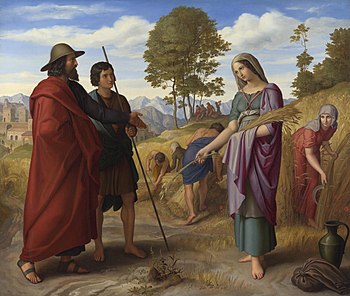- Was it her fault that the king lusted in his heart for her?
- Was she responsible for her husband’s death?
Image credit: Bathsheba Art
The Hebrew meaning of Bath Shebha is “seventh daughter” or “daughter of the oath”. Bathsheba was the mother of King Solomon. She was the wife of Uriah the Hittite who David had murdered to cover up his act of adultery with her. Bathsheba became pregnant by King David while her husband was away at war. The child that was conceived through that adulterous union died. David later made Bathsheba his lawful wife and she gave birth to Solomon, the last king to rule over a united Israel. After Solomon’s death, 10 of the 12 tribes of Israel revolted against the rule of Solomon’s son, Rehoboam, and the kingdom was divided.
Throughout the years, many have debated whether Bathsheba was as guilty of adultery as King David. Was she deliberately bathing outdoors knowing that the king could see her from his balcony? When he summoned her, even though he was king, could she not have refused him? Could she not have pleaded with him not to defile her? Why didn’t she prick the king’s conscience and remind him that her husband was an honorable man and loyal to the king and not deserving of such treachery? Instead of sending word to the king that she was pregnant by him, why not send word to her husband that while he was away and she was all alone, the king violated her and now she was with child? Had she done any of those things the biblical account would clearly show who the guilty party was and Bathsheba’s biography would read differently. Some conclude Bathsheba is just as guilty as King David of committing adultery.
It should be noted that the scriptural account does not indicate that Bathsheba objected to being taken by King David. The scriptures also do not indicate that she DID indeed object but was taken against her will. What the bible story does reveal is that Nathan the prophet went directly to King David and accused him of the sin!!! Evidently, the God of King David had no problem figuring out who the guilty party was. And the prophet serving that God had no problem telling the king that his God was not pleased with his behavior. And the scriptures are clear to show David was the one punished, not Bathsheba.
Nathan compared Bathsheba to “a little ewe lamb”. She was taken and violated. Her husband was murdered. She bore an innocent child and lost the child. Defilement and grief on top of grief: she was an innocent who was wronged and hurt. How do we know this? Because the scripture says after all of this happened, David made her his legitimate wife and “comforted her”. I suppose it was the least he could do. Read all of her story and tread carefully before maligning the character of a decent and honorable woman. David paid the price for his sin.
- Bible References: BATHSHEBA – 2 SAM 11: 3; 12: 24; 1 KINGS 1:15, 28, 31; 2:13





